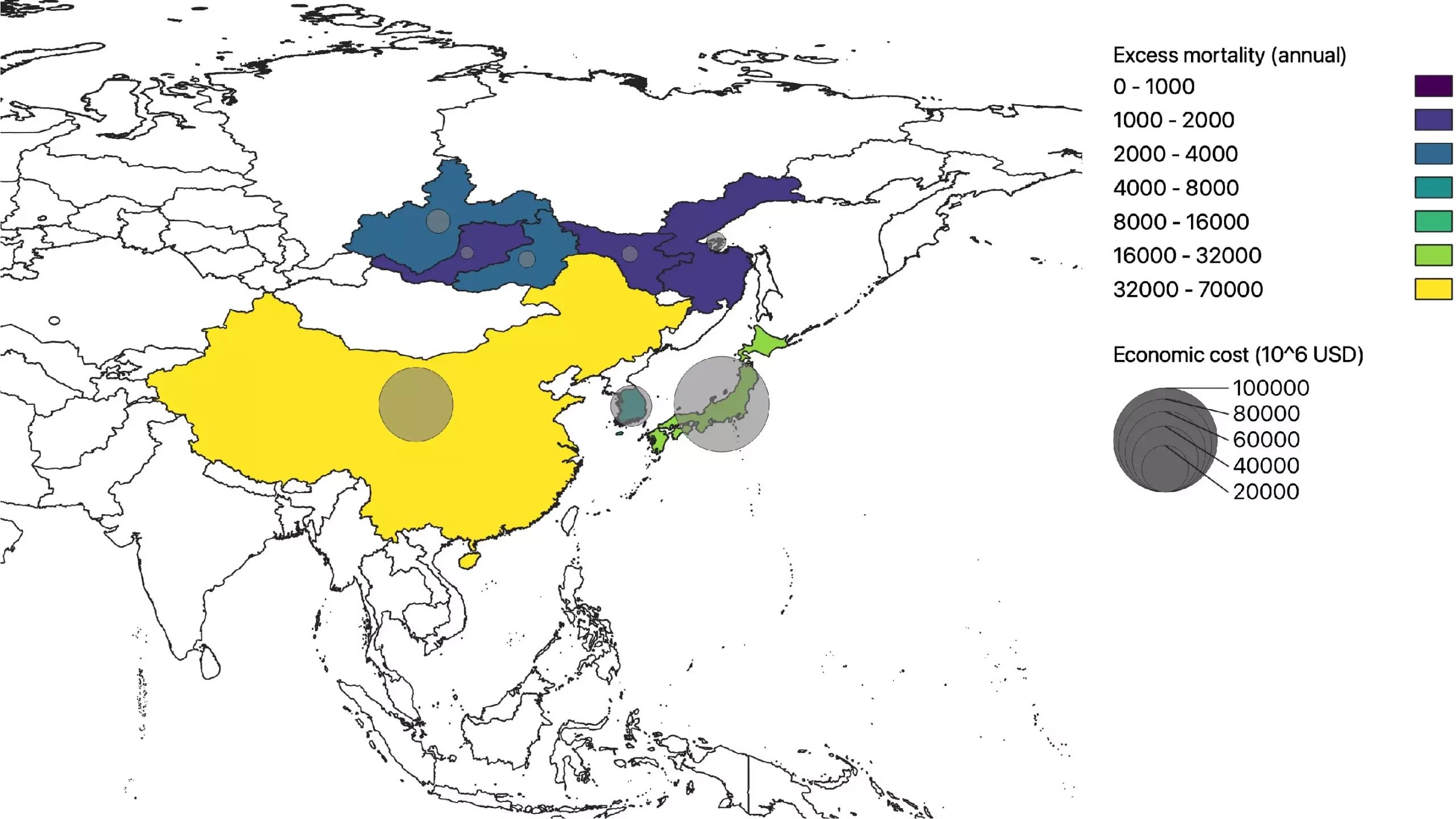The increasing frequency of wildfires in Siberia has raised concerns about the significant impacts on climate, air quality, health, and economies not only in East Asia but also across the entire northern hemisphere. A recent study conducted by researchers at Hokkaido University, the University of Tokyo, and Kyushu University has shed light on the potential consequences of escalating wildfires in Siberia.
Global Effects of Siberian Wildfires
The global effects of the escalating wildfires in Siberia have been analyzed through sophisticated global climate modeling. The study, published in the journal Earth’s Future, predicts substantial and widespread impacts on air quality, climate, health, and economics under extreme wildfire scenarios. The research involved global numerical simulation experiments to assess how the heightened intensity of wildfires in Siberia would influence air quality, premature mortality, and economy through elevated atmospheric aerosols.
One of the major impacts of wildfires on the atmosphere is the release of atmospheric aerosols – minute particles suspended in the air. These aerosols not only affect air quality but also have far-reaching effects on climate. The research utilized a Japanese global climate modeling system, the Model for Interdisciplinary Research on Climate version 5 (MIROC5), along with other models like the aerosol model SPRINTARS, to study the effects of Siberian wildfires comprehensively.
The simulations indicated a cooling effect over extensive regions across the northern hemisphere due to the reflection of sunlight from the aerosol particles emitted by the wildfires. While this may partially counteract warming under near-future global warming conditions, it also leads to worsened air quality in downwind areas. The most extreme wildfire scenario is projected to significantly deteriorate air quality not just locally but also in vast areas of East Asia downwind of the wildfires.
Health and Economic Impacts
The study suggests that the increased mortality rates associated with air pollution from wildfires could result in health-related costs amounting to approximately 10 billion US dollars annually. However, these estimates do not consider additional costs and secondary social effects stemming from non-fatal illnesses, which could further escalate the economic burden. The broad repercussions of wildfires in Siberia highlighted in the study emphasize the necessity for more refined global climate models to accurately assess and mitigate the far-reaching impacts.
As global warming progresses, the impact of massive wildfires in Siberia on climate and air quality is projected to become increasingly significant. The findings of the study underscore the critical need for enhanced efforts to control the effects of wildfires in Siberia to prevent excess fatalities, respiratory illnesses, and economic losses. The research serves as a crucial reminder of the interconnectedness of wildfires, climate change, and public health, urging stakeholders to take proactive measures to address this pressing issue.


Leave a Reply